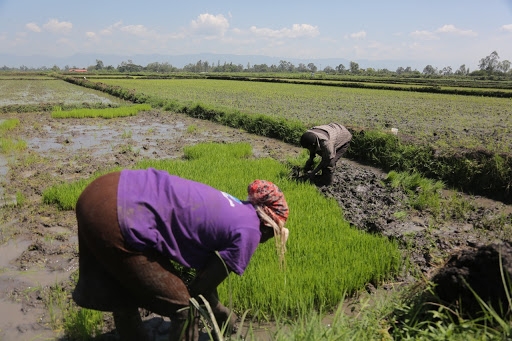
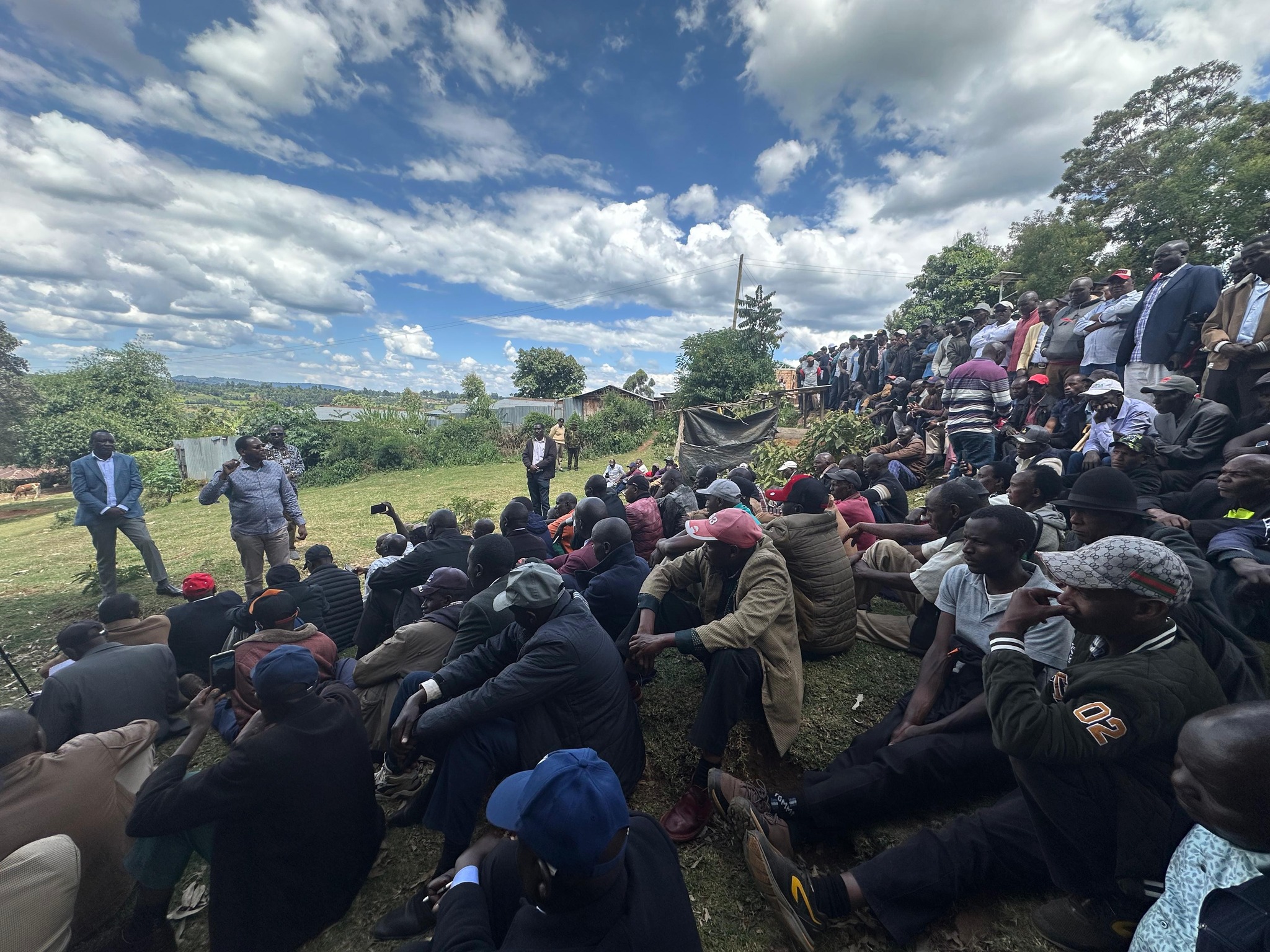 A delegations from the National Assembly Committee on Agriculture and Livestock meets tea farmers at Motigo Tea Factory in Bomet county, November 18, 2025. /PARLIAMENT
A delegations from the National Assembly Committee on Agriculture and Livestock meets tea farmers at Motigo Tea Factory in Bomet county, November 18, 2025. /PARLIAMENT
Delegations from the National Assembly Committee on Agriculture and Livestock were Wednesday on their second day of a public inquiry into tea pricing in Kenya following discrepancies in bonus rates paid to farmers in Rift Valley.
The team led by committee chairperson John Mutunga (Tigania West) met tea farmers in Nyamira, Muranga and Kiambu counties.
On Tuesday, two different delegations conducted similar field visits to tea factories in East and West of Rift Valley to collect comparable information to establish why the huge difference in bonus payout.
At Motigo Tea Factory in Bomet county, farmers from Zone 9 factories demanded an overhaul of the Kenya Tea Development Authority (KTDA), accusing it of contributing to the challenges they face.
They argued that KTDA’s representation structure sidelines the West, leaving their interests unaddressed.
Farmers further urged the implementation of an audit report prepared by the Tea Board of Kenya, insisting that individuals implicated in mismanagement of funds should be held accountable.
“The audit report shows corruption and mismanagement of farmers resources by our directors. They made many decisions without involving the farmers," Josiah Kerich, a farmer from Kapkoros, said.
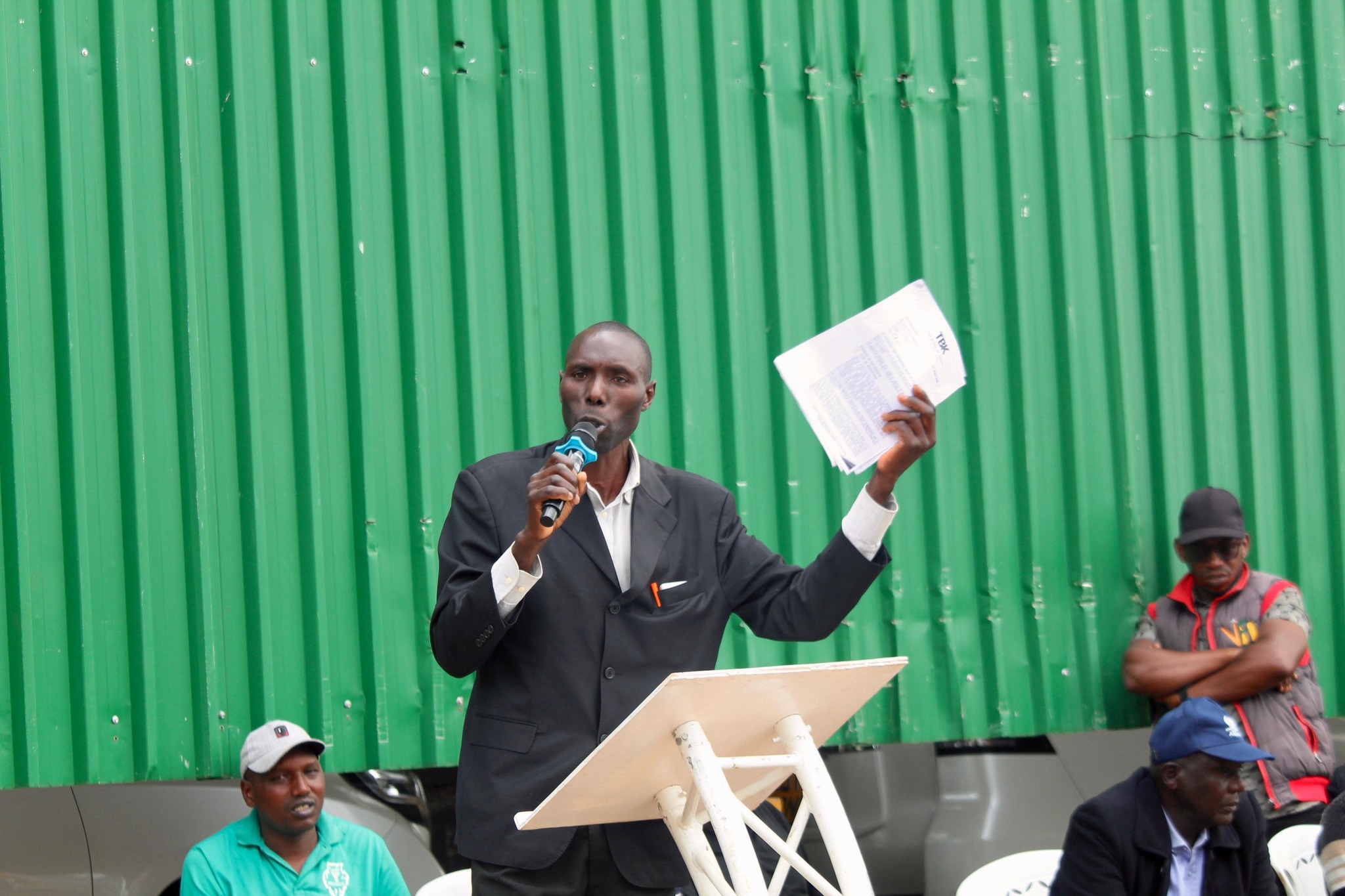
"The audit report shows directors bought land without farmers consent and as farmers we are not happy. In fact, millions of money is being misappropriated through allowances. We call upon investigative agencies to investigate and find solutions and those guilty be arrested and made to pay,” he added.
The farmers also raised concerns about rising production costs, saying expenses have climbed steadily while bonuses remain poor.
“We don’t have any other source of income, it is just tea that we depend on. And being paid Sh13 for bonus is such an insult. We can’t pay school fees or even buy food to sustain our families and pay those who pluck the tea for us,” Zeddy Mausa said.
Mutunga assured growers that the committee intends to address long-standing grievances, noting that tea remains a top foreign exchange earner and its decline poses serious economic risks.
“Tea exports leads in foreign exchange earning and when a farmer uproots a crop that takes seven years for optimal production, there is a problem,” he said.
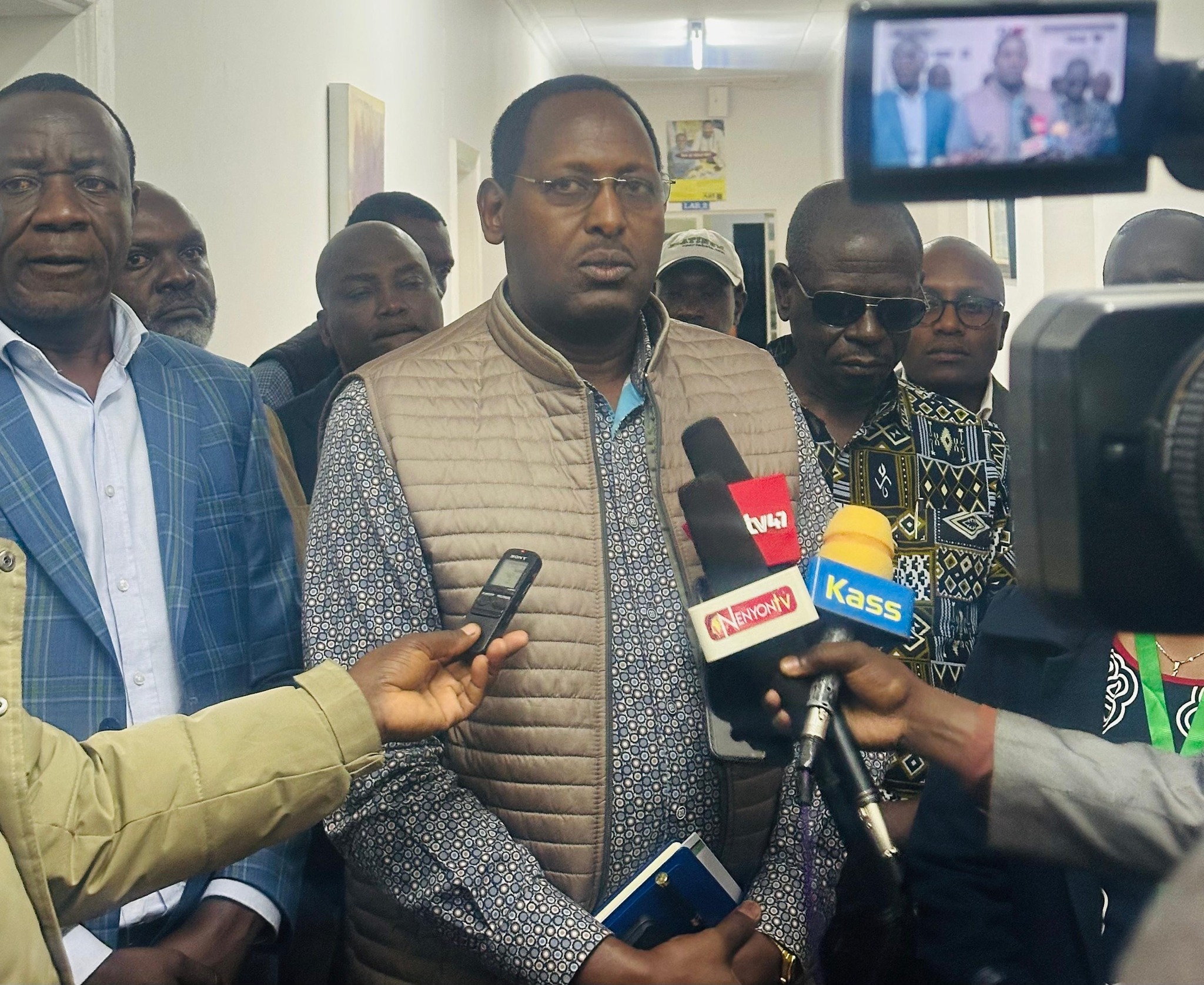 National Assembly Committee on Agriculture and Livestock chairperson John Mutunga speaks after meeting tea farmers at Motigo Tea Factory in Bomet county, November 18, 2025. /PARLIAMENT
National Assembly Committee on Agriculture and Livestock chairperson John Mutunga speaks after meeting tea farmers at Motigo Tea Factory in Bomet county, November 18, 2025. /PARLIAMENTHe added that the committee had examined tea quality during field visits and confirmed that plucking standards were being followed.
“We have understood that farmers are not happy and these issues we have been aware of for the past three years. We have inspected the quality of tea being processed here and indeed farmers are plucking two leaves and a bud as directed and that is why during this inquiry we are asking the same questions with the same objective to establish comparable outcomes from the two regions,” Mutunga said.
Responding to concerns raised, Kapkoros group of companies chairperson Robert Rono called for swift enforcement of the 2023 Management Services Agreement between factory companies and KTDA Management Services Ltd.
He said factory boards are often sidelined in key decisions involving inter-factory loans, bulk procurement and oversight.
“Regualtory failure and unleveled playing grounds set by TBK is affecting us negatively and also failure to enforce Tea Act and Tea regulations uniformly.
"Private tea processers operate without proper bush licenses and also KTDA is subjected to tea reserve prices in tea auction unlike private entities that can sell way below the reserve prices and do not pay bonuses. We need to be subjected to fair play,” Rono said.
The committee later visited the Tea Research Institute (TRI) for further insights on how quality variations may influence bonus payments.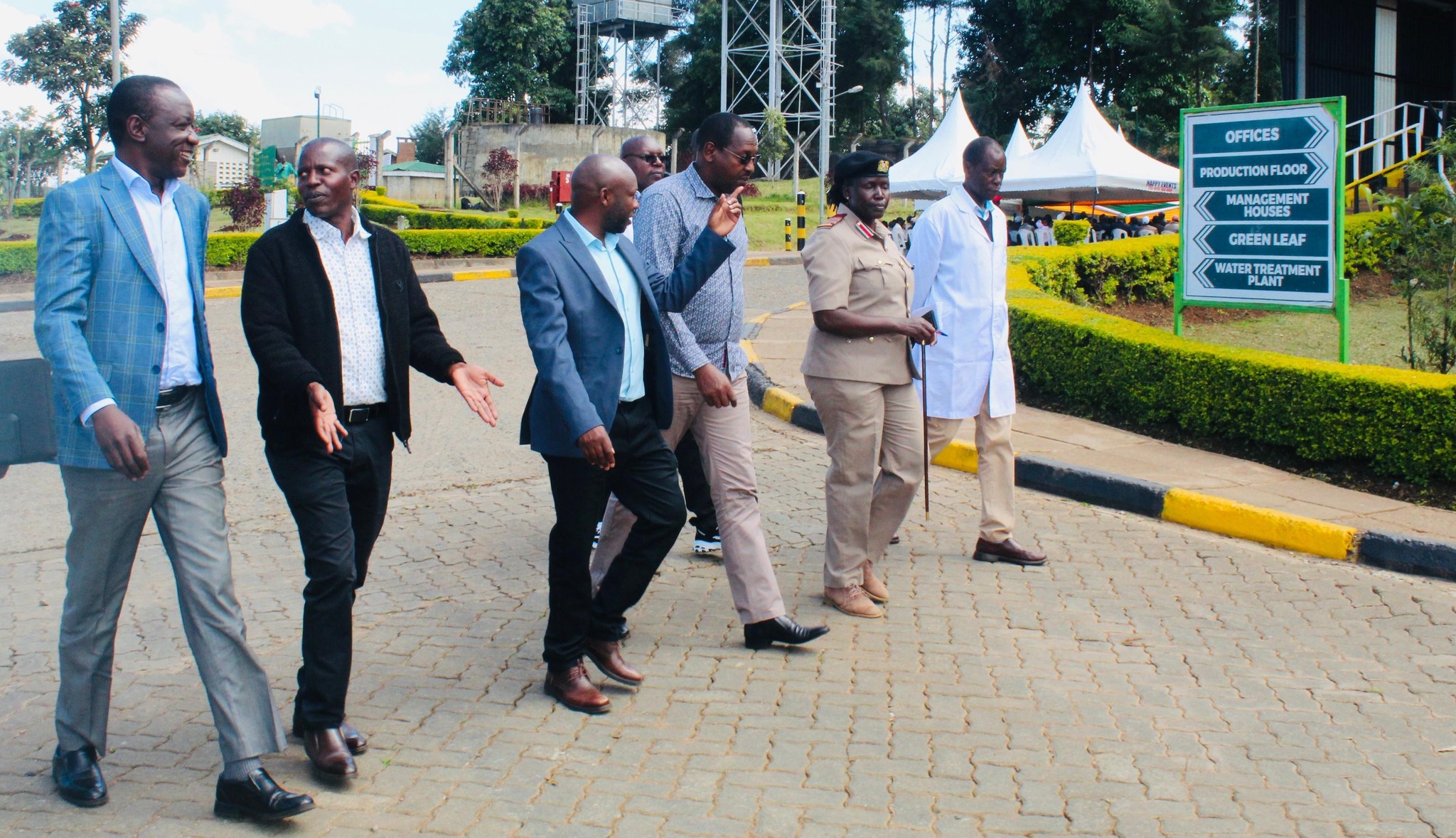 National Assembly Committee on Agriculture and Livestock arrives at Tea Research Institute
National Assembly Committee on Agriculture and Livestock arrives at Tea Research Institute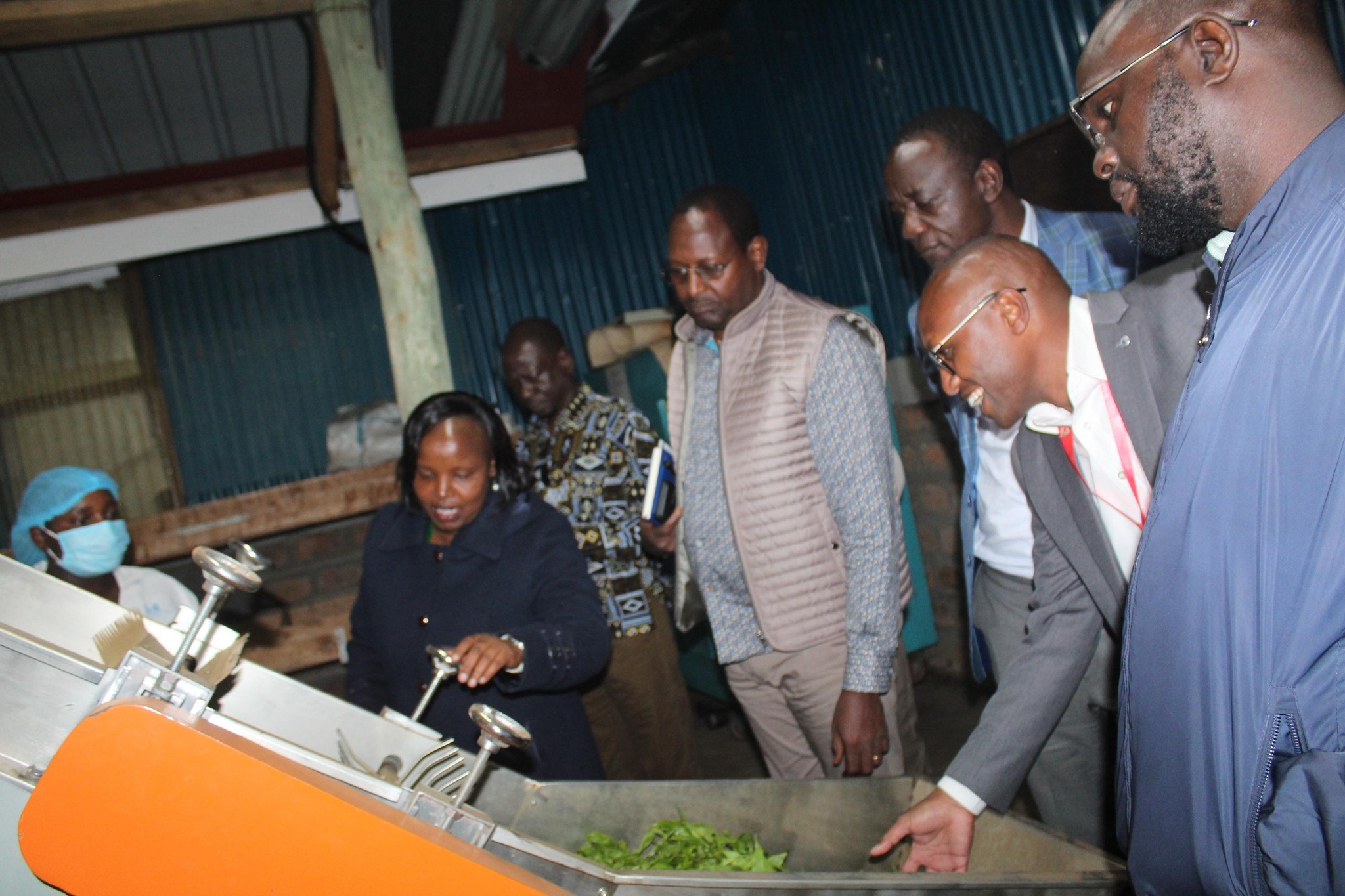 National Assembly Committee on Agriculture and Livestock inspect processes at Tea Research Institute
National Assembly Committee on Agriculture and Livestock inspect processes at Tea Research Institute
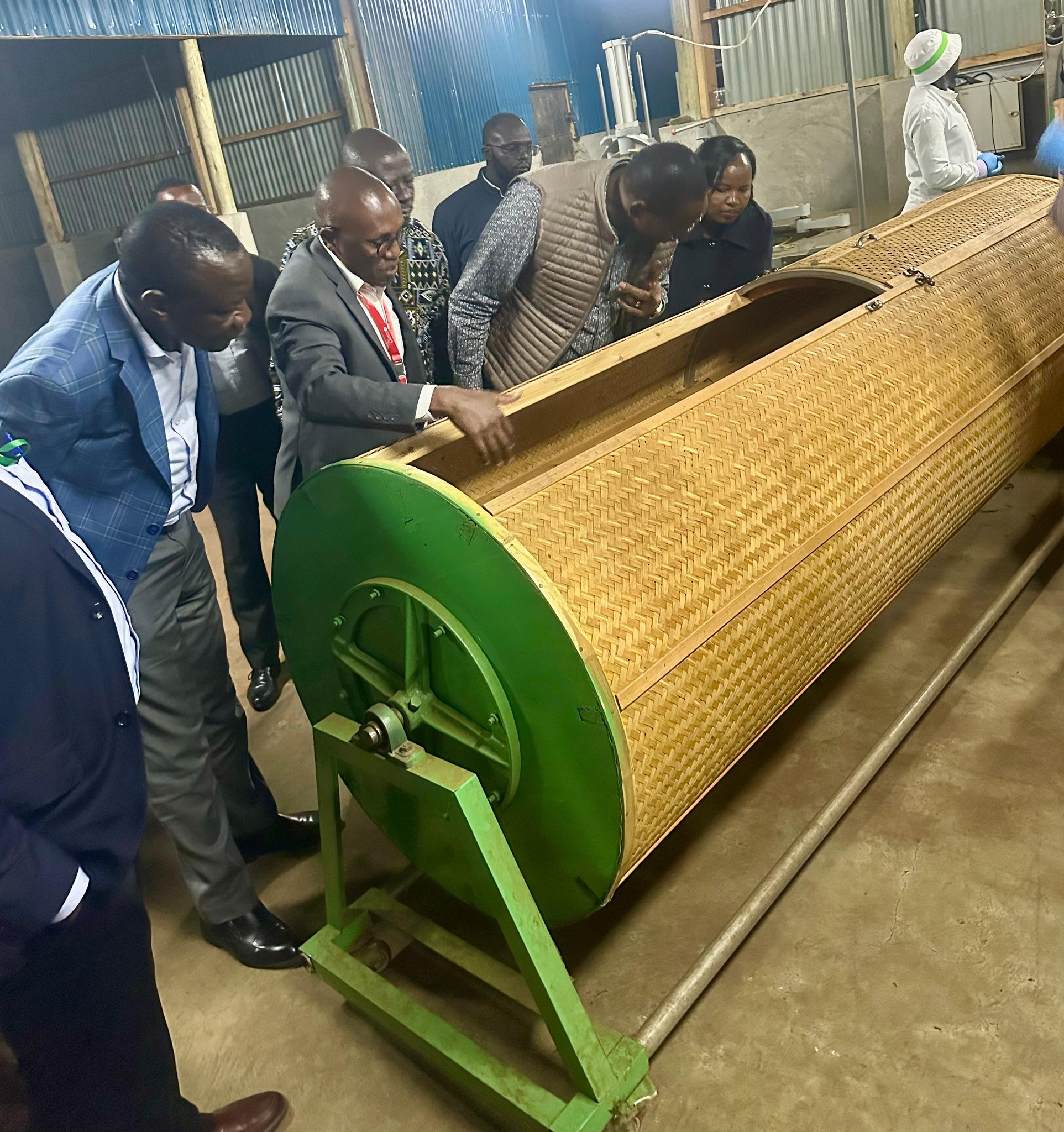
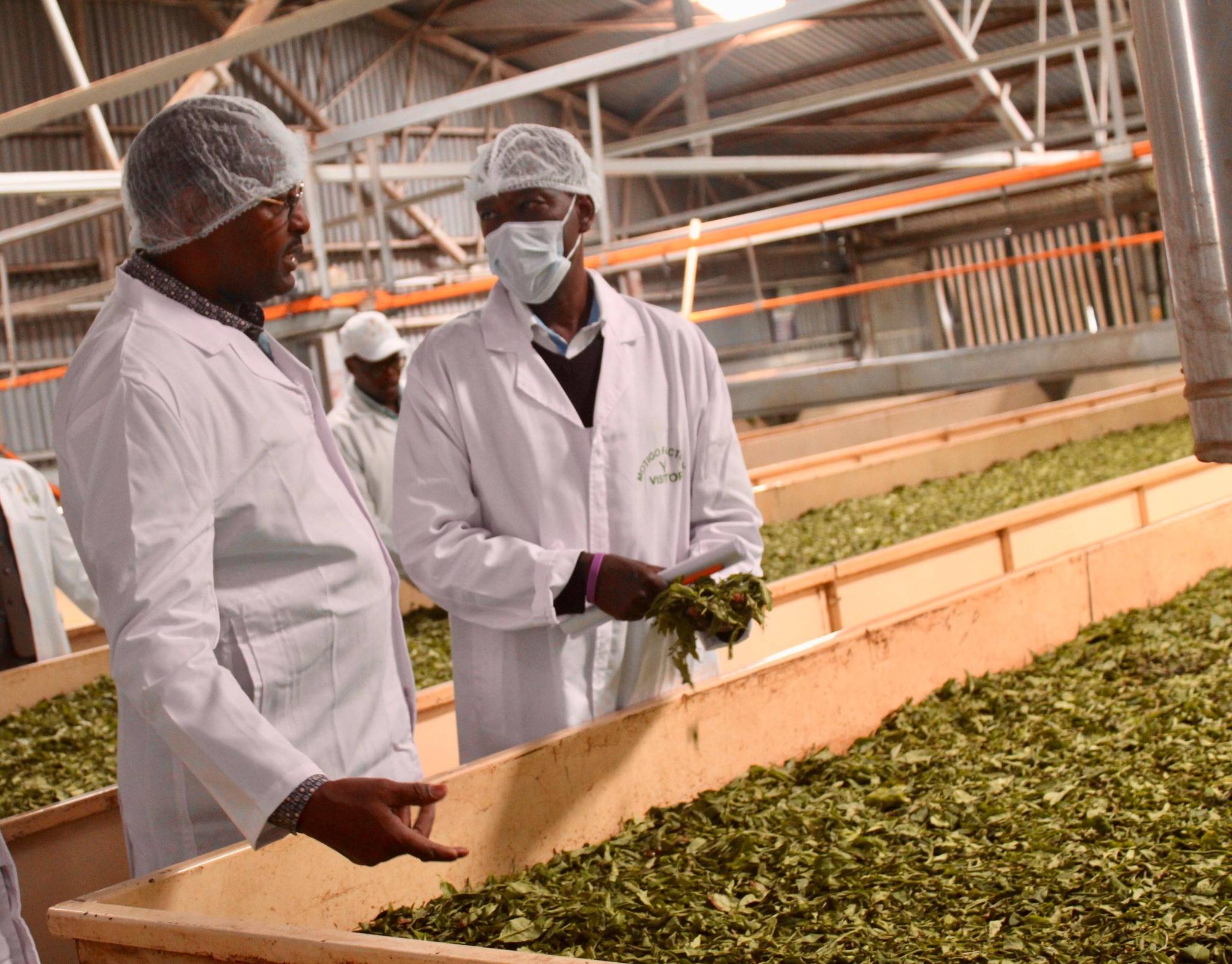
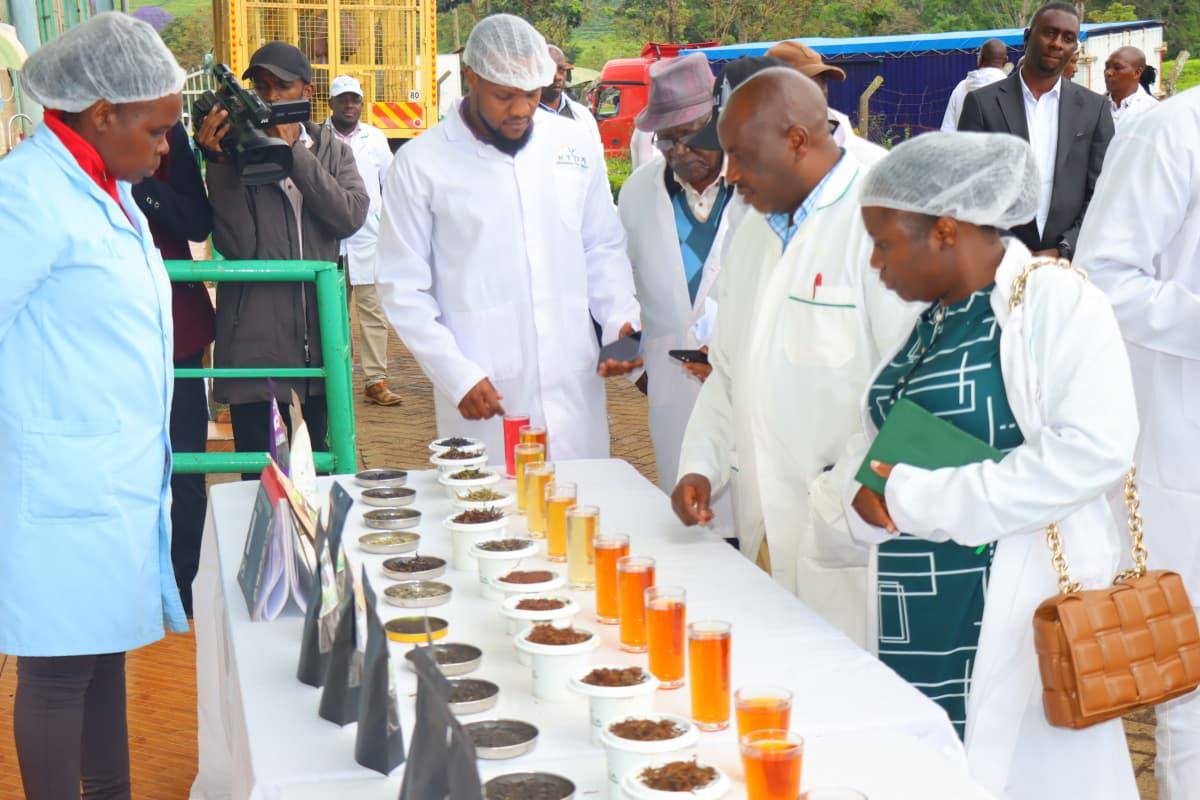 National Assembly Committee on Agriculture and Livestock inspect processes at Tea Research Institute
National Assembly Committee on Agriculture and Livestock inspect processes at Tea Research InstituteAccording to TRI director Lilian Kerio, factors such as factory-level policies, rainfall patterns, climate change and road conditions all have an effect on the final tea grade.
She noted that inadequate funding continues to hinder the institute’s research capacity.
“We do not have funding to do more extensive research since we don’t get any government allocation and tea levy in the Tea Act, 2020 is yet to be implemented. We request for funding in order to generate revenue. We have a factory which is not functional since we lack equipment and machines,” she said.
Meanwhile, a second delegation led by committee vice chairperson Brighton Yegon (Konoin) toured Michimikuru and Rukuriri tea factories in Meru and Embu counties.

















